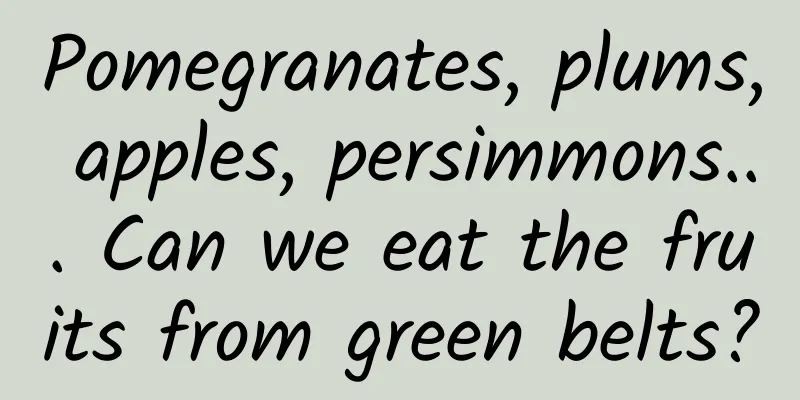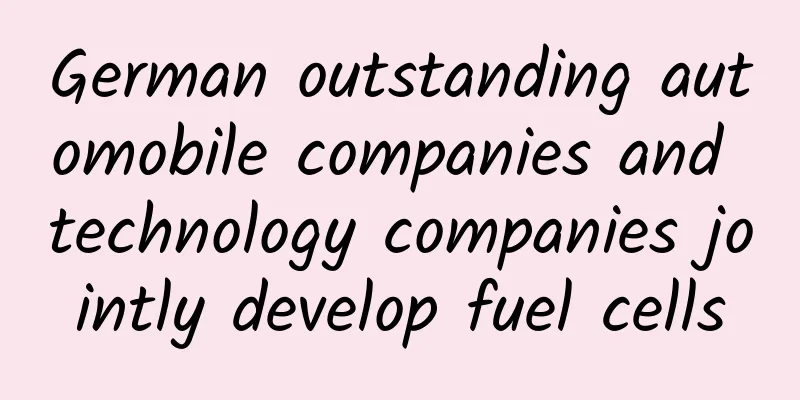Pomegranates, plums, apples, persimmons... Can we eat the fruits from green belts?

|
Audit expert: Yang Yanhui Senior Landscape Engineer, Beijing Haidian Water Ecological Construction Development Co., Ltd. Autumn is here, and it is harvest season again. In the green belts along the roadside, the fruits of green plants are visibly ripening. Pomegranates, plums, persimmons, apples, hawthorns... These fruits look no different from those sold in the market, so can we pick them home, wash them, and eat them? Key point: Not recommended First of all, they are not delicious . Due to different uses, many greening fruit trees are somewhat different from large-scale planted fruit trees. Because these fruit trees are planted mainly for viewing and greening purposes, the taste of the fruit is not considered when choosing varieties. For example, the pomegranate we usually eat is the fruit pomegranate, which has a short flowering period, plump fruits, sufficient moisture in the seeds, and extremely high nutritional value. The flower pomegranate, also known as the rose pomegranate, is a very rare and precious variety in the pomegranate family. It has lush branches and leaves, large flowers and many fruits, and has extremely high ornamental value. Its fruit is not suitable for eating and tastes bitter. The picture shows a pomegranate. Image source: Baidu Encyclopedia In fact, the fruits of some green plants taste pretty good when they are fully ripe, similar to the fruits on the market. But most of the time, these fruits are picked before they can ripen. Besides tasting bad, these fruits generally have little nutritional value. Take the purple-leaf plum, a common greening plant in Beijing, as an example. Purple-leaf plum is a variant of the cherry plum of the genus Prunus in the Rosaceae family. It is related to the fruit tree plum and also has normal leafing, flowering and fruiting. It's just that people choose to cultivate it in different places. The picture shows purple-leaf plum. Image source: China Nature Reserve Specimen Resource Sharing Platform According to relevant measurements, purple-leaf plum fruit mainly contains water, sugars, vitamins, flavonoids, anthocyanins, coumarins, quercetin, neolignin, carotene and other ingredients. Judging from these substances, it is okay to eat purple-leaf plum fruit. Its fruit does not contain toxic substances, but the nutritional content is not high and it does not have much benefit to the human body. Second, unhealthy The source of the engineered soil may be a place that has been polluted. For example, there was a chemical plant nearby. Even if it was later demolished, the soil in that area may have been chemically polluted. There is no problem with planting some ornamental plants in this soil, but the wild vegetables, mushrooms, fruits, etc. grown in the soil will accumulate pollutants and harmful ingredients, which may be harmful to the human body if eaten. 0 2**** Environmental pollution The atmosphere around the plant may also have an impact on it. For example, if it is planted next to a chemical plant, the fruit of the plant may contain pollutants. There are also some harmful components in the exhaust gas emitted by passing cars, which can also be absorbed by plants. Fruit trees planted beside the road are polluted by car exhaust and dust all year round, and toxic and harmful substances may remain in the fruits. 0 3**** Pesticide residues In order to prevent and control diseases and insect pests of landscape trees, the landscaping department will spray pesticides on vegetation. In this case, eating fruits at will can easily lead to danger. Most fruits are not safe to eat until about a week after being sprayed with pesticides. Pesticides will remain on the surface of the fruit for a short period of time after being sprayed. Eating fruits after spraying will have a serious impact on your health and may even cause food poisoning, nausea, vomiting, bloating, diarrhea and other symptoms, which is not good for your health. Generally, it will take about a week for the pesticides on the surface of the fruit to gradually dissipate. At this time, the fruit can usually be eaten, but be sure to wash the fruit with clean water before eating. As for the plants in the green belts, since they are not edible, the frequency and concentration of pesticide use on the green belts are likely to be higher and more casual than on grown food, so their fruits will also be at risk of excessive pesticide residues. Therefore, while we enjoy the comfortable environment brought by urban greening, we should also take the responsibility of loving and protecting green. At the same time, for personal health and safety, do not pick and eat the fruits of landscape fruit trees, protect the green landscape, and strive to be civilized citizens. **Reference:** Upstream News "Can the fruits on the fruit trees in the green belt be eaten? Relevant departments: The fruit trees are "very damaged" and the fruits are not suitable for consumption! " China Consumer News: "Behind the temptation lies the risk. Please do not eat the 'green belt'" |
<<: If you often have these 5 thoughts, it means you are wasting yourself! Please stop immediately
>>: Where does the poop on the plane go?
Recommend
Transcontinental wireless communication, he turned dreams into reality
Field, who finally succeeded after many setbacks ...
React Native-Currently the hottest front-end technology
[[160497]] As a product manager, have you ever en...
From fuel vehicles to new energy vehicles, BMW and Mercedes-Benz will always be Audi's rivals
When talking about Audi, we naturally think of Me...
What can we learn from Mi Meng's self-media entrepreneurship?
" An assistant only earns 50,000 yuan a mont...
New analysis of Tik Tok’s marketing strategy!
1. Long-term management returns to its essence In...
How does information flow advertising grasp user psychology? Use these 13 copywriting skills right away!
In information flow advertising consultation, the...
Operation system [Introduction]: How to do promotion and marketing?
Today I will talk about three points: 1. Third-pa...
Creative writing skills for advertising in 6 major industries!
During my years as a bidder, I asked myself more ...
The most prominent part of a smartphone is actually on the side
We have discussed many articles about physical bu...
Can drunken shrimp, drunken crab, sashimi, white wine and aged vinegar kill parasites in raw food?
Review expert: Wu Xinsheng, deputy chief physicia...
Tencent advertising account building skills sop
Next, let’s discuss the creative logic and review...
WeChat 8.0.6 iOS version is officially launched with these 6 major changes
In actual testing, although there are no major fu...
Come to Google Developer Festival to experience Android Wear and have a chance to win Google prizes
[[121319]] On October 26, the annual Google Devel...
China Automobile Dealers Association: Pickup Truck Market Analysis Report in October 2020
According to data from the China Automobile Deale...









